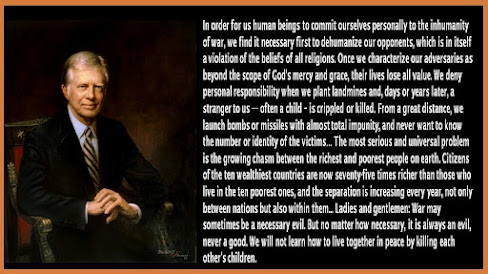Five minutes later and without provocation, Matthews blurted out: “… I thought you (Christie) were a moderate Republican. No Seriously, I’m amazed that you don’t believe in evolution and mankind’s effect on climate change. I thought those were established scientific facts.” From this point forward any attempt by Christie to respond to any question was met with shout downs, and incessant interruptions. This rudeness, disrespect and intolerance were insufferable.
In recent years there has been a concerted effort by many anti-god extremists to remove all mention of God from our culture and society and political discourse. This movement in large part has been inspired by an intense distaste for the emergence of extreme, fanatical religious precepts influencing Republican Party doctrine.
We now see these ant-God zealots behaving in exactly the same manner. The only difference between them is that the anti-God movement it is not being done in the name of a political ideology or political party but in the name of science.Scientific evidence is constantly being challenged by scientists. They are the first to concede that it is ever changing thus needs constant scrutiny. It aids in our understanding and in many cases – but not all - has proven to be generally accurate. Therefore, the study and debates surrounding both evolution and manmade global warming should continue as they may yet reveal evidence that either supports or contradicts what is currently on record as being accurate.
The bigger question and concern here is the anger and resentment expressed over a belief that is harmless. Mr. Matthews acted as if Mr. Christie had given a strong endorsement to the Ku Klux Klan or the Third Reich. Who or what does a belief in God as one’s creator hurt? What most importantly should demand our consideration is the obvious refusal or ignorance as to the contributions people who hold to such a belief have provided to mankind.
Could Mr. Matthews have forgotten or did he choose to ignore the Declaration of Independence?
“We hold these truths to be self-evident, that all men are created equal, that they are endowed by their Creator with certain unalienable rights, that among these are life, liberty and the pursuit of happiness.”
Mr.
Matthews frequently evokes Dr. Martin Luther King Junior. Clearly Dr. King was one of the greatest men
to ever walk among us. Curiosity begs
the question as to whether Mr. Matthews has also forgotten that Dr. King was a
reverend - a Baptist preacher who clearly believed in divine creation.
Mr. Matthews also takes every opportunity to enrich himself through the use of President Kennedy. Could it be possibly that President John Kennedy’s attending Mass every Sunday to give thanks, praise and adoration to a God he obviously believed was his Creator has escaped Mr. Mathews?
And then there is Mother Teresa of Calcutta.
We need to be mindful that the compassionate and humane philosophies that acted as the very foundation and fabric of what once made America the greatest country on earth is indeed embedded in Judeo-Christian teachings and beliefs.
The same rights under the precious precepts of our First Amendment are granted and protected for both Mr. Christie and Mr. Mathews even if one chooses to reject science and the other chooses to reject the founding fathers, Reverend King, President Kennedy and Mother Teresa. Regardless of our belief, we must remain committed to die for those rights even if the beliefs are held by radical extremists. What isn’t a right and needs to be distained are strong armed tactics to belittle those who believe or think differently than we do. That in essence is spitting on the first Amendment.
Ron Christie is to be admired for maintaining his composure and courage of conviction while under assault in a very public medium. Mr. Mathews owes Mr. Christie an apology. He also owes an apology to every decent, respectable, mainstream Christian.

























